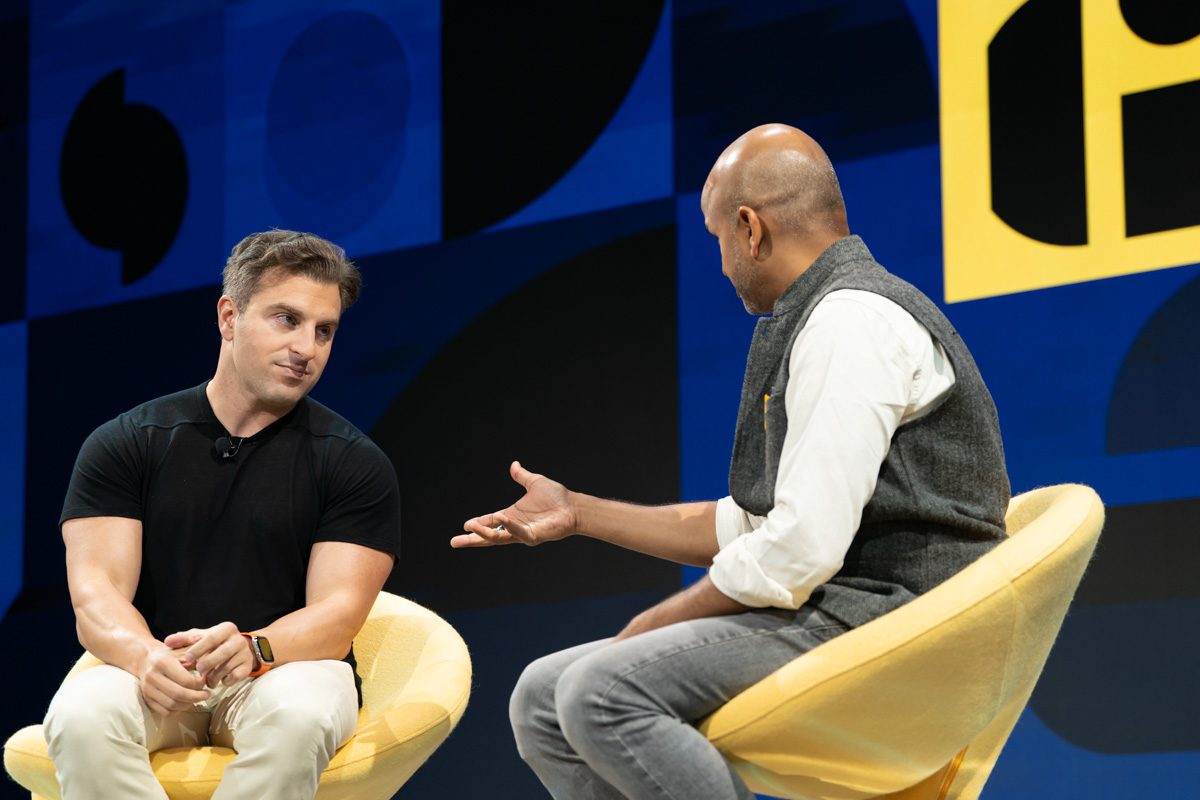Skift Take
Airbnb's Brian Chesky may be over-estimating how many people will work from home in the future "glued" to their laptop screens. But the world has changed — for sure — and travel patterns have been altered as well, with new demand for experiences.
Airbnb co-founder and CEO Brian Chesky said travel experts and analysts underestimate travel’s potential, and that the industry would soon witness a new “golden age of travel.”
Fueling part of the trend, he argued, is that an estimated 50 percent of U.S. workers could potentially labor on their laptops from home, and they would travel to get out of the house, and seek human connections.
Chesky termed it a “dystopian” risk to people to remain glued to their screens all their day, and they will leave their homes to travel and combat loneliness. And they won’t merely be traveling to places such as Las Vegas, Rome and Paris, but would venture out to some of the 100,000 cities and markets where Airbnb would try to inspire them to travel to.
Skift founder and CEO Rafat Ali interviewed Chesky on stage at the Skift Global Forum Wednesday in Manhattan, where the Airbnb CEO detailed his vision of the new era.
In other news, Chesky contended that Airbnb’s experiences’ business is now back to pre-pandemic levels, and after a two-year pause instituted in 2020, it would get a product refresh and new investment over the next couple of years.
“Experiences will become once again a rising priority, and we are making quite a few investments in the product to continue to highlight experiences,” Chesky said during an earnings call in early August. “And I think it’s going to be a big part of our story in 2023 and beyond over really the next five years. So I’m really excited about them.”
However, Chesky said at the Skift Global Forum that Airbnb would not get into the transportation and airline booking business. “That’s not going to happen anytime soon,” he said.
One reason is that transportation tends to be a commoditized business and wouldn’t enable Airbnb to lend it differentiation, he said.
Regarding Airbnb’s rebound from the early days of the pandemic, Chesky said cross-border travel has returned — except in Asia — and that urban travel is strong, although it hasn’t and probably won’t return to pre-pandemic levels.
Although cities may not return to pre-pandemic levels, New York City may be an exception, he added.
But adding to the momentum will be people living and working in a “distributed” way in the future, and getting out to travel to seek human connections, he said.
Business travel will not be all about attending sales meetings, but will be for longer trips and will be blended with vacations and living, Chesky said.
Chesky said Airbnb’s new categories for searching for accommodations is a multiyear effort, and it would enable Airbnb to enhance its role as a place to inspire travel to new destinations.
He said Airbnb found it can take a different approach to marketing than many of its online travel agency rivals. Chesky said the company spent about 20 percent of its revenue on sales and marketing in the second quarter. Booking Holdings spent more than 50 percent of its revenue on sales and marketing in the second quarter, and has traditionally been way more profitable than Airbnb.
Chesky said public relations — generating news stories — is more important to Airbnb than paid marketing in search engines. He characterized such performance marketing as a “drug” that’s tough to kick once you start using it.
Dwell Newsletter
Get breaking news, analysis and data from the week’s most important stories about short-term rentals, vacation rentals, housing, and real estate.
Have a confidential tip for Skift? Get in touch
Tags: airbnb, business travel, experiences, flights, future of work, marketing, online travel newsletter, public relations, sgf2022, skift live, transportation
Photo credit: Airbnb co-founder and CEO Brian Chesky (left) spoke with Skift founder Rafat Ali at Skift Global Forum in Manhattan November 21, 2022.
